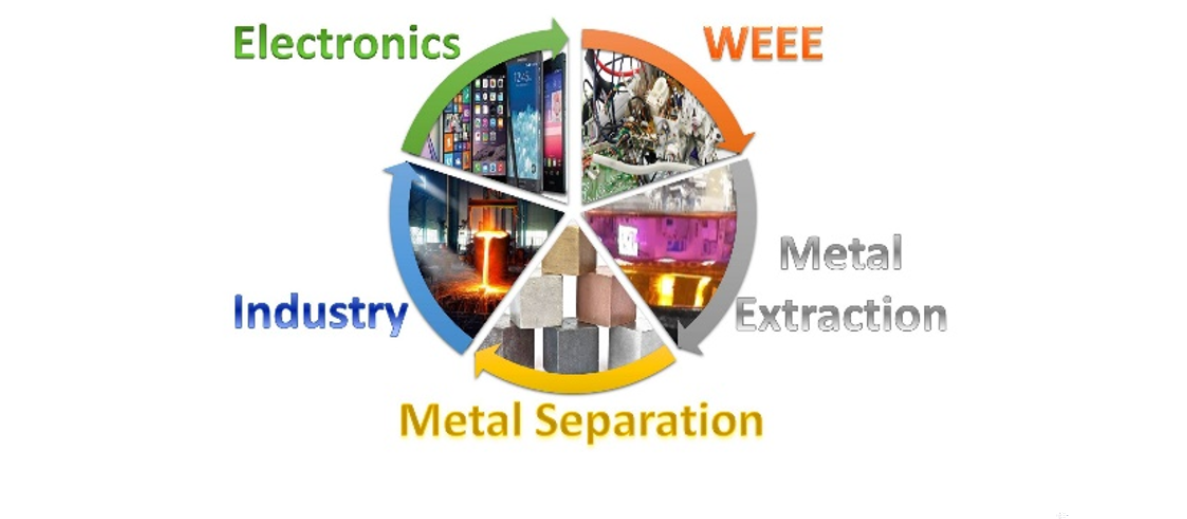
Doctoral Themes - Proposals
REEcover – Rare Earth Elements recover and recycling by CHON ionic liquids in continuous way
Supervisors
João Paulo Leal, jpleal@ctn.tecnico.ulisboa.pt
José Manuel Carretas, carretas@ctn.tecnico.ulisboa.pt
Registration Institution
Instituto Superior Técnico (Universidade de Lisboa)
Project description
An emerging area of sustainable chemistry is the development of circular economics. In the case of rare earths elements (REEs) possible secondary sources for their recovery are the so-called “urban waste” (recycling from end-of-life products) and tailings and other by-products from previous mining activities, in both cases with great benefits for the environment. To achieve the challenges of a circular economy new or improved separations of high-value metals are essential.
For some years, we have been involved in recovery of rare earth elements from a variety of sources. To perform the valorisation of rare earths and others valuable elements, we propose solvent extraction studies in continuous mode using designed ionic liquids to make the process more efficient and environmentally friendlier.
The experiments with several lanthanides in counter-current continuous mode will be tested, to evaluate the process and its use in larger scale rather than only in batch experiments. What is new is take in account the whole cycle of recovery of the metals including what to do with the solvents and extractants as well. Most of the times ionic liquids are presented as green solvents, but this is not true for all the cases. Since ionic liquids used in the process must also be recovered, purified, and sometimes destroyed or recycled it is of crucial importance that they can suffer these processes without contaminating the environment. As so, ionic liquids with CHON in their composition (and not F or S as usual) will be used to keep them really green.
Keywords
Rare earths, Ionic Liquids, Green process, Circular Economy

Societal challenges
In September 2015, the 2030 Agenda for Sustainable Development was agreed at the United Nations Sustainable Development Summit. This new framework for international cooperation to promote sustainable development between 2015 and 2030 is composed of 17 new Sustainable Development Goals (SDGs). The present topic is, firstly, aligned with objectives 9 (industry, innovation, and infrastructure) and 12 (responsible consumption and production) since it advocates new methods of metal recovery, more environmentally friendly, which lead to a lower consumption of raw materials and less waste production; and the promotion of a circular economy making consumption and production more sustainable.
Indirectly, due to a lower impact on the environment, it also contributes to objectives 6 (clean water and sanitation), 7 (affordable and clean energy) and 11 (sustainable cities and communities).
Check other proposals from this and the other thematic lines:




